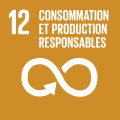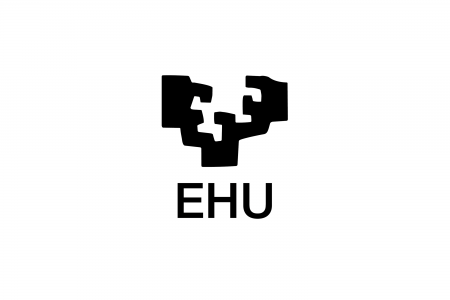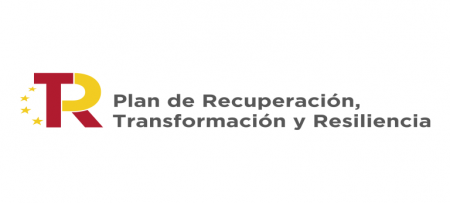
Specialization: genomics-microbiome in health, sports, and precision nutrition
Integrate precision tools into your practice with new training in genomic and microbiome analysis applied to precision nutrition and health, sports performance, circadian health, lifestyle, and evolution.
Description
This 6-credit online Specialisation provides technical and applied Genomic and Microbiome Analysis training for professionals interested in Precision Nutrition and Health, Sports Performance, and Circadian Health.
The course addresses the molecular foundations of genomic and microbial variability, the evolutionary perspective, and the interpretation and application of Omics reports in real-life contexts. It is accessible and practical, requiring no prior knowledge of genetics or bioinformatics. The approach integrates live lectures, case studies, digital resources, and critical analysis of scientific evidence. Participants will develop skills to incorporate these data into personalised interventions for precision health and nutrition, sports performance, and circadian health.
Objectives
Understand the fundamentals of genomics and the microbiome as applied to health, nutrition, athletic performance, evolution, and biological rhythms.
Interpret genomic and microbiome reports issued by laboratories and apply them in professional practice
Critically evaluate the methodological quality of scientific studies and omics analyses.
Use bioinformatics databases and resources to search, analyse, and contextualise genetic and microbiome information.
Design personalised intervention strategies to integrate omics data and precision health criteria.
Learning outcomes and type of achievement
1) Understand the molecular and functional foundations of genetic variability and the human microbiome, as well as the evolutionary perspective and its implications for health, nutrition, physical performance, and circadian rhythms.
Type of achievement: Acquisition of applied conceptual knowledge.
2) Interpret and analyse genetic and microbiome reports, integrating the results into professional practice through real and simulated case studies.
Type of achievement: Ability to apply knowledge in real-life and professional contexts.
3) Critically evaluate the quality of scientific genetics and microbiome studies, using recognised methodological criteria and relevant bioinformatics databases to consult and apply updated evidence.
Type of achievement: Development of critical thinking and scientific literacy.
4) Select and use specialised digital resources (databases, bioinformatics tools, technical reports) for data searching, analysis, and interpretation in genomics and the microbiome.
Type of achievement: Development of digital skills applied to the scientific and health field.
5) Design personalised nutrition, physical activity, rest, and preventive health interventions based on genetic and microbiological data, integrating interdisciplinary knowledge and respecting ethical and scientific principles.
Type of achievement: Synthesis and integration of knowledge to solve professional problems.
Access prerequisites and admission criteria
A university or higher education degree, or professional experience in health, nutrition, biological sciences, sports science, or related disciplines, is recommended. No prior knowledge of advanced genetics or bioinformatics is required, as the training focuses on interpreting and practically applying analyses.
Required age: between 25 and 64 years old.
Level of learning experience according to EQF European Qualifications Framework
EQF, European Qualifications Framework: EQF 6.
ESCO, European Skills, Competences, Qualifications and Occupations competency frameworks
Apply scientific methods.
- Description: Apply scientific methods and techniques to investigate phenomena, acquire new knowledge, or correct and integrate prior knowledge.
- Type of competency: capacity
- Level of reusability of the competency: cross-sectoral capabilities and competencies
Provide counselling on genetic issues:
- Description: Provide counselling to patients affected by genetic diseases, helping them manage their disease and improve their quality of life.
- Type of competency: Capacity
- Level of reusability of the competency: Cross-sectoral skills and competencies
Evaluate genetic information.
- Description: Evaluate genetic data by applying statistical calculations and analyzing the results.
- Type of competency: capacity
- Level of reusability of the competency: cross-sectoral capabilities and competencies
Interpret laboratory data on medical genetics.
- Description: Perform diagnostic studies and biochemical genetic, cytogenetic, and molecular genetic analyses, interpreting the laboratory data obtained.
- Type of competency: capacity
- Level of reusability of the competency: cross-sectoral capabilities and competencies
Report the results of analyses.
- Description: Prepare research documents or give presentations to report the results of a research project and analysis, indicating the analytical procedures and methods that led to the results, as well as possible interpretations of the results.
- Type of competency: Capacity
- Level of reusability of the competency: Cross-sectoral skills and competencies
Evaluation tests
- Written evaluations: 1. Multiple Choice Examinations
- Practical evaluations: 1. Projects
Activity directed to
- All public
- University student
- Students not from university
- Teachers
- Professionals
Methodology
This online specialisation follows a theoretical and practical methodology aligned with the current challenges of personalised health, precision nutrition, sports performance, circadian health, and preventive health promotion. It combines a traditional methodology of theoretical lectures with specific practical activities and the completion of a project tailored to each student, in a cross-curricular, accessible, and evidence-based manner.
No prior knowledge of advanced genetics or bioinformatics is required, as the training focuses on the interpretation and practical application of analyses. A university degree or higher education degree, or professional experience in the fields of health, nutrition, biological sciences, sports science, or related disciplines, is recommended.
Organised by
In collaboration with
Directors
Professor of Genetics at the University of the Basque Country (UPV/EHU). PhD in Biochemistry. Extraordinary Doctorate Award from the UPV/EHU. Euskadi Innovation Award. Director of the Hologenomiks Research Group in the Department of Genetics at the UPV/EHU. Professor of Genetics and Microbiome in Nutrition, Health, and Sport at various Spanish and American universities. Inventor of eight national and international patents in Human Genetics and Microbiome. Author of articles and books published in internationally renowned journals in this field. Experienced in entrepreneurship and knowledge management in the biosciences.
Speakers
Professor of Genetics at the University of the Basque Country (UPV/EHU). PhD in Biochemistry. Extraordinary Doctorate Award from the UPV/EHU. Euskadi Innovation Award. Director of the Hologenomiks Research Group in the Department of Genetics at the UPV/EHU. Professor of Genetics and Microbiome in Nutrition, Health, and Sport at various Spanish and American universities. Inventor of eight national and international patents in Human Genetics and Microbiome. Author of articles and books published in internationally renowned journals in this field. Experienced in entrepreneurship and knowledge management in the biosciences.
Registration fees
If the microcredential has already started there will be no refund of the enrolment fee.
| Registration | Until 16-04-2026 |
|---|---|
| 169,59 EUR |
| Insurance | Until 16-04-2026 |
|---|---|
| 4,00 EUR |
Venue
Live online
Live online
Sustainable development goals
Agenda 2030 is the new international development agenda approved in September 2015 by the United Nations. This agenda aims to be an instrument to favour sustainable human development all over the planet, and its main pillars are the eradication of poverty, a reduction in equality and vulnerability and fostering sustainability. It is a unique opportunity to transform the world up to 2030 and guarantee human rights for all.

3 - Good health and well-being
Guarantee a healthy life and foster the well-being of all people of all ages. Key issues: universal healthcare coverage, sexual and reproductive health, reduction in the number of road accident casualties, pollution and chemical products, reduction in maternal and neonatal mortality, the end of epidemics such as AIDS, combating hepatitis and other water-borne diseases, drug and alcohol prevention, control of tobacco.
More information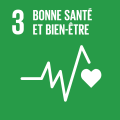
4 - Quality education
Guarantee quality education that is inclusive and equitable and foster opportunities for lifelong learning for everyone. Key issues: free-of-charge, equitable and quality education, access to higher education and training on an equal basis, education for sustainable development, suitable education centres for persons with disabilities, and safe, non-violent and efficient learning environments.
More information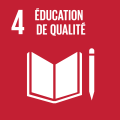
8 - Decent work and economic growth
Foster sustained, inclusive and sustainable economic growth, full and productive employment and decent work for everyone. Key issues: decent work, full and productive employment, entrepreneurship, fostering micro-companies and SMEs, employment rights, safe working environments, youth employment, equal opportunities and pay, strengthening of financial institutions, and breaking the link between economic growth and the degradation of the environment.
More information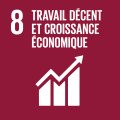
9 - Industry, innovation and infrastructure
Build resilient infrastructures, promote inclusive and sustainable industrialisation and foster innovation. Key issues: reliable, sustainable, resilient and quality infrastructures, inclusive and sustainable industrialisation, modernisation, clean and environmentally rational industrial technologies and processes, scientific research and improvement of technological capabilities, universal access to ICTs.
More information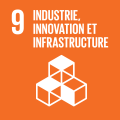
12 - Responsible consumption and production
Guarantee sustainable modalities of consumption and production. Key issues: sustainable management and efficient use of natural resources, reduction of chemical particles released to the atmosphere, water and soils, reduction of waste products, recycling, reuse and reduction, sustainable practices, sustainable public procurement, sustainable lifestyles, rationalisation of inefficient subsidies for fossil fuels.
More information